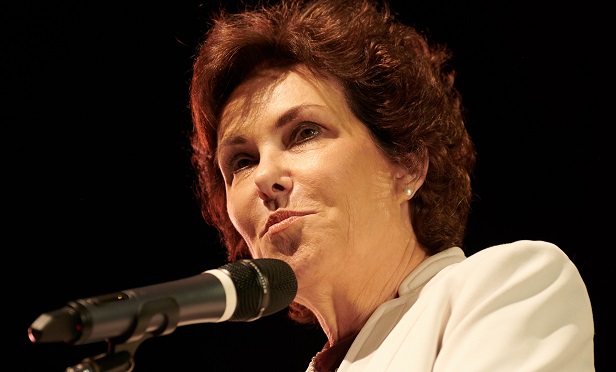
 Jacky Rosen (Photo: Bridget Bennett/BB)
Jacky Rosen (Photo: Bridget Bennett/BB)
In the neighboring western states of Nevada and Arizona, the Democratic strategy for flipping Republican Senate seats in the Trump era is moving in opposite directions.
Senate candidate Jacky Rosen is touting progressive policy ideals and hammering President Donald Trump to motivate the Democratic base in Nevada to turn out for the Nov. 6 election. Yet over the border in Arizona, Kyrsten Sinema is downplaying her party affiliation and rarely mentions the president as she pitches a moderate platform to middle-of-the-road voters.
"This race is about Arizonans, not party politics in Washington," Sinema said. "As my record shows, I've never been afraid to buck my party to get things done for our state."
The two states represent Democrats' best hopes for gains in a year when the party is facing one of the most politically skewed Senate-election maps in history. They are crucial to cushioning possible Democratic losses in states such as North Dakota and Indiana or, less likely, giving them a shot at Senate control if the party's incumbents all manage to win re-election.
"There's no path to taking back the Senate that doesn't run through Nevada," Rosen, a first-term congresswoman, said in an interview. "I'm aware of that every day."
For the Republican candidates, incumbent Sen. Dean Heller in Nevada and Rep. Martha McSally in Arizona, the strategy is simple and unified: embrace Trump closely and count on a fervent Republican base to carry them to the Senate.
Diverging Paths
Despite some demographic similarities, Arizona and Nevada have diverged politically in recent decades, and that's dictating campaign strategy.
Nevada has become more of a swing state, going for the Democratic presidential candidate in the last three elections and consistently electing one Democrat and one Republican to the Senate since 2001. Arizona has been more reliably Republican — it hasn't voted to send a Democrat to the Senate since 1988 and voted for a Democratic presidential candidate only once since 1948. But it's trending blue. Hillary Clinton lost Arizona by 3.4 percentage points in 2016, and Democrats lost an open Senate seat by just 3 points in 2012.
At a rally in Las Vegas last week, Rosen was joined by self-described Democratic-socialist Sen. Bernie Sanders. She drew cheers from a young crowd as she vowed to "turn Nevada blue" and fight for gun control, raising the minimum wage to $15 an hour, protecting undocumented youth and tackling climate change.
Aligning With Sanders
She said she and Sanders "both believe that health care is a right, not a privilege." And she torched Trump's "reckless" immigration policy that "tears babies from their mothers." The next day, she held a get-out-the-vote rally in a heavily Latino east Vegas community that she said was "under attack" by Trump.
Rosen also often reminds audiences that Heller is a Trump ally and urges them to vote to wrest Senate control from Republicans.



